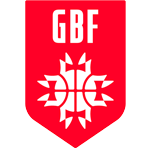23 points in the EuroBasket final - an era created by Otar Qorqia and Nodar Jorjikia
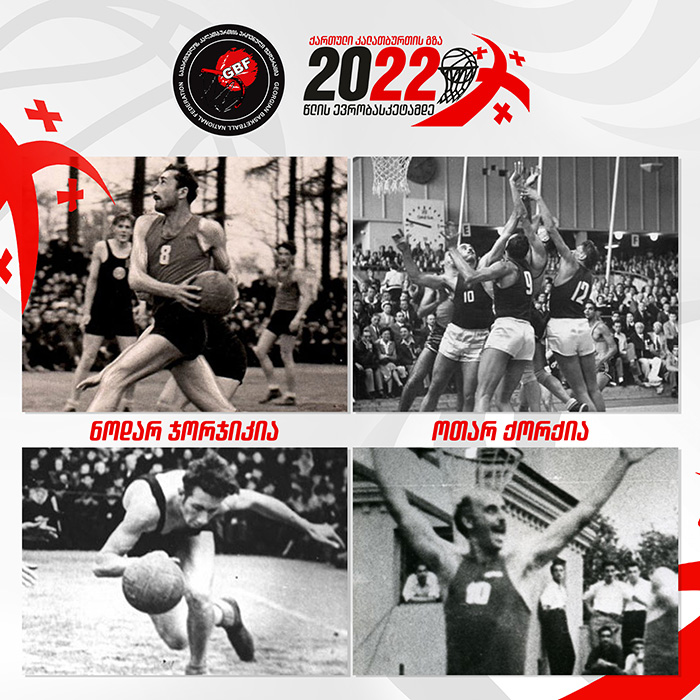
The road of Georgian basketball to EuroBasket 2022 counts exactly 100 years. As with all roads, the first section was cognitive, during the first 20 years after the introduction of basketball in Georgia (1922), Georgians were getting acquainted with and were studying, to take concrete steps later.
In the early 1940s, no one had time for basketball. After the end of the Second World War, people appeared who knew well what path to take and how to take Georgian basketball to the world level.
After the war
The war was not over yet when Tbilisi hosted the USSR Championship in 1944. The team of Tbilisi officers, coached by Grigol Meunargia, won. The young Nodar Jorjikia played in the Tbilisi team, the shooter was Mikheil Filipov, and one of the members of the team Lev Dzekonski later became one of the outstanding coaches in Georgia. Two years passed and this team, with almost the same roster and coach, won the USSR championship for the second time.
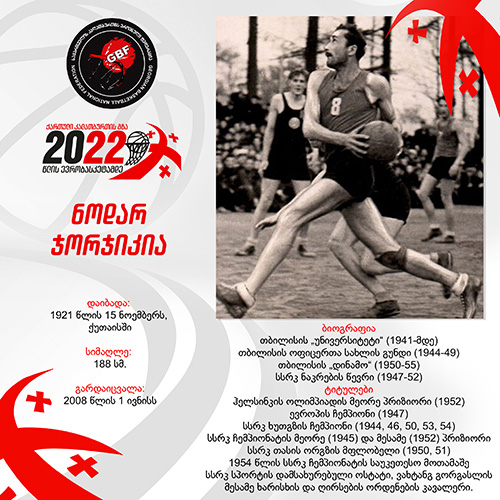
The words of Nikolai Semashko prove that Georgian basketball stood firmly on the path of world basketball development:
“At the Soviet Championship held in 1947, the equipment of the competition in Tbilisi was much better than at the European Championship. Georgian players usually introduce all the novelties in sports equipment. We first saw metal constructions (author A. Jaliashvili) with baskets raised in front in Tbilisi in 1945. Such shields spread throughout the Soviet Union. There is no doubt that the electric clocks used in the last competition will be introduced in future championships as well. “
Do you know who Mr. Semashko was? – Head of the Sports Committee of the USSR in the 1940s and Vice-President of FIBA (1960-1976), the EuroBasket Cup is named after him.
23 points in the EuroBasket final
On May 3, 1947, Otar Qorqia said the first Georgian word in European basketball. The word was brave – on this day in the final of the European Championship Czechoslovakia and the Soviet Union faced each other.The match ended with the victory of the Soviet team – 56:37. Otar Qorqia scored 23 points in the final!
Legendary coach Alexander Gomelsky recalled:
“Qorqia was always a shining star on our courts. After the end of the war, it was also discovered by European basketball world. The captain of the Soviet team led the team to the continental gold medals three times. The Czechoslovakians were then considered favorites. Years later, top players such as Ivan Mrazek and Irzhi Skerzhik admitted that they were simply afraid of Otar Qorqia. He suppressed the opponents with so much physical strength, strong will and fighting ability that the opponents had already been lost before the match started. Even the referees of the games with the participation of Otar Qorqia were frightened in front of him.”
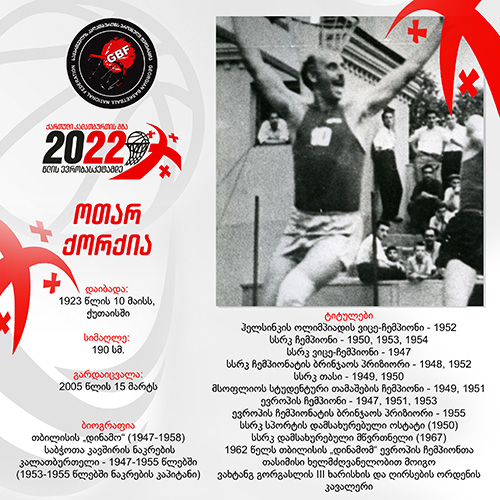
Three gold
The Georgians, who returned with the gold medal of the European champion, won the Soviet championship one after another – Dinamo Tbilisi became the champion in 1950, 1952 and 1953. At that time, in addition to the Moscow team, the main opponent of our team was the Lithuanian Zalgiris.
„The fate of gold medals was going to be decided in the match against Zalgiris in Vilnius and the Georgians were losing by a point. Qorqia took the ball under the opponent’s cover, with the three opponents hanging on his shoulders, rose in the air and put the ball in the basket“, – This is also what Alexander Gomelsky said.
One interesting detail from the history of Dinamo – Zalgiris meetings: In 1953 the championship of the USSR was held in Tbilisi. Georgians and Lithuanians held the final round convincingly and faced each other in the final match. The game was planned on the tennis courts of Dinamo, but the net could not withstand so many fans and the stands were so full that there was almost no space between the fans and the players.
The organizers made a strange decision – the game, secretly from the fans, was moved to the then Kirov Park (Vera Park). However, people were not lacking there either.
Encouraged by them, Dinamo won 52:43 and became the champions of the USSR for the third time.
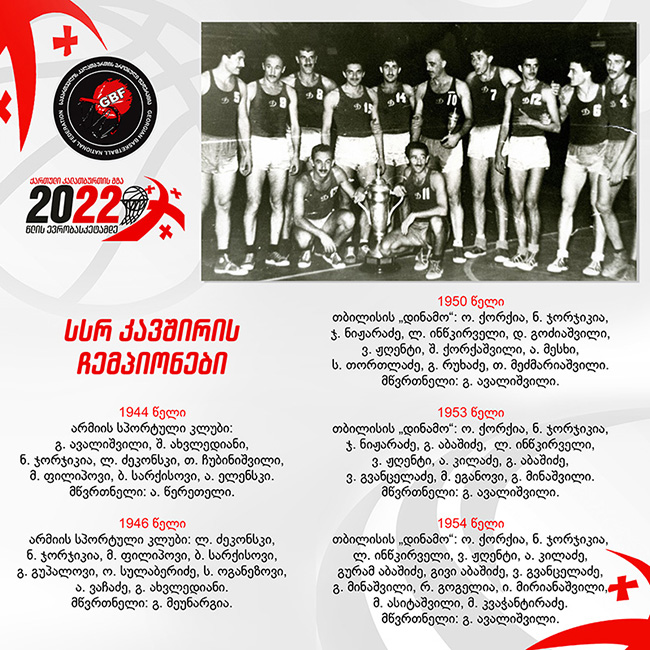
Helsinki 1952
In 1952, the Soviet Union competed at the Olympic Games for the first time. The Jorjikia-Qorqia team lacked very little for the big sensation and the Olympic gold.
National Teams of 16 countries from all over the world arrived in Helsinki, the capital of Finland. They were divided into four groups and after the first stage their number was halved. The USSR defeated Bulgaria, Mexico and Finland in the first three matches in a row.
In the second stage, they also got in a four-team group, but with more serious opponents. They defeated Brazil by 5 points, Chile – by 18, but had a hard time with America – 58:86. Otar Qorqia received a serious injury to his right hand during the match with the USA:
“Otar injured his hand in the fight with Lovelett. The American was tough on him on purpose. Otar did not sit on the bench, he asked the doctor to fasten the bandage as soon as possible and then entered the court again. Along with the pain he had to overcome the resistance of the Americans, in fact, he played alone, but not with half force – saving energy did not fit into his character. Only after the match did he go to the hospital, where several stitches were put on his hand,” – writes journalist Arsen Eremyan.
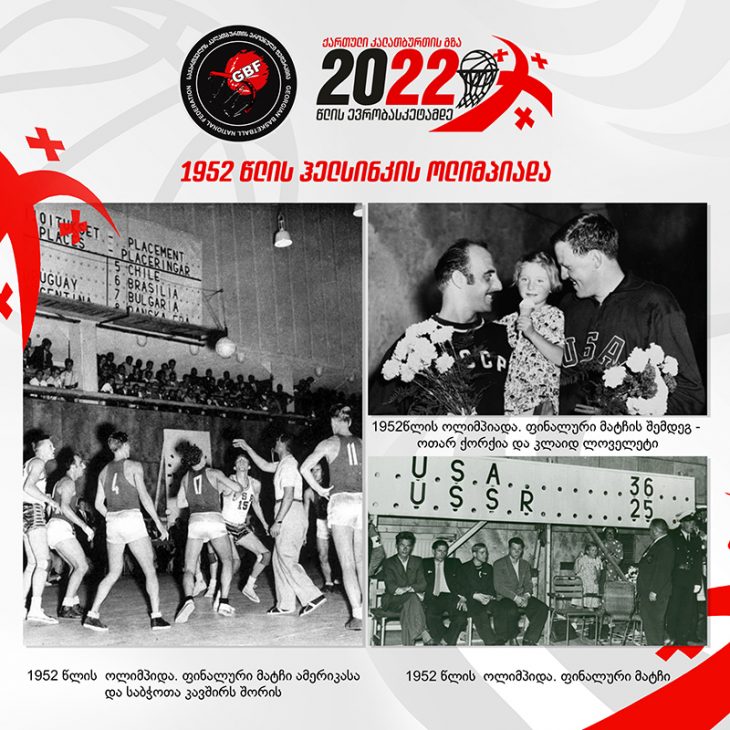
If in the previous two meetings he scored 25-25 points, he just had 8 against the USA. Surprisingly, with one hand he “gifted” 38 points to Chile in the last match of the second stage. In the semifinal, in the 61:57 match against Uruguay, the legendary Georgian had 21 points.
It was August 2, the day of the basketball final of the Helsinki Olympics. Otar Qorqia scored 8 points again, but the main thing was his defensive action – he didn’t let tall Americans to come close to the USSR basket.
Let’s listen to Arsen Eremyan again:
“In the final match, the 30th minute turned out to be decisive, when Otar Qorqia left the court due to four fouls. The American giants, Robert Kurland (213 cm), Marcus Freiberger (210) and Kyle Lovelett (209), admiring the game of the rival’s leader, accompanied Qorqia with applause.
23:23 was written on the board at that moment. In the remaining time, the USSR lost 2:13 and took the silver medal.”
2:13, even from these numbers it can be seen what role the Georgian center played in the Soviet team. Along with him was Nodar Jorjikia, a permanent member of the Soviet National team and the leader of the back line, whose defensive line was difficult for even the highest level attackers to cross.
